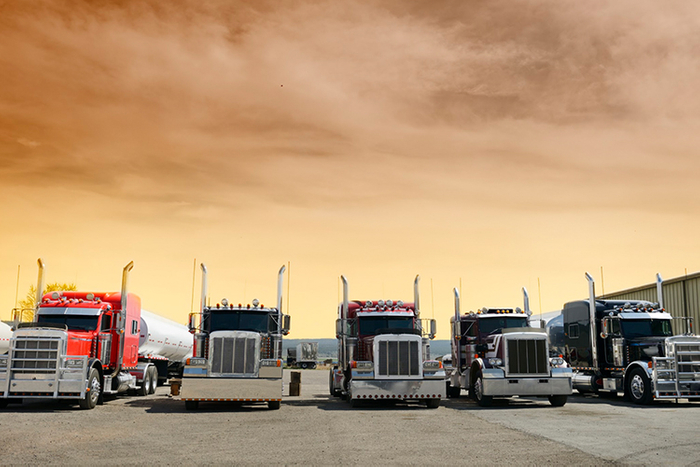History of Government Regulation of Trucking

Motor Carrier Act of 1935
If you think there is too much government regulation of trucking, you are undoubtedly correct. However, it was once worse. Way worse. In fact, from the nineteen thirties until around 1980 you could not even obtain the authority needed to start up a new trucking company. The US government started regulating the prices charged and free competition in interstate transportation in 1887 when our Congress created the Interstate Commerce Commission (ICC) to regulate the railroads. Less than fifty years later, truckers were included in the ICC’s power with the passage of The Motor Carrier Act of 1935. Yep, motor carriers have been federally regulated in some fashion or other since way back in 1935.
The Motor Carrier Act forced newly formed trucking companies to obtain a "certificate of public convenience and necessity" from the ICC in order to haul non-exempt freight. The ICC was very strict in approving such requests for authority. For the most part, Truckers in existence prior to 1935 were grandfathered for these certificates, but they had to document their previous trucking services. New trucking companies, on the other hand, found it extremely difficult – darn near impossible - to get certificates of authority.
This restrictive federal law made all motor carriers file their proposed rates also known as tariffs with the ICC 30 days prior to becoming effective. These filings were of public record so anyone – especially competing trucking companies were free to look at the filed tariffs and object to them in writing to the ICC. When proposed filings were protested by another trucking company who asserted that they were already providing the same freight hauling service or they were capable of expanding their trucking services to do so, the ICC nearly always denied the request until an investigation was conducted.
Reed-Bulwinkle Act of 1948
Then, in 1948, under the Reed-Bulwinkle Act, Congress made it even worse when it allowed motor carriers to collude with one another and fix rates for hauling freight. This law which exempted truckers from the country’s important antitrust laws was passed by overriding a veto from then-President Harry Truman.
From 1940 to 1980, it was almost impossible to get new or expanded certificates of common carrier authority to transport goods for the public. Only when no competing motor carrier opposed the application would it be granted; a rare circumstance. Cases where the proposed new service was not already being performed by other existing carriers, the ICC maintained that a trucker who already possessed authority would be given the first shot, so the new applicant was invariably denied.
Certificates of Authority
During these times, the only practicable way to gain entry to a new market was through buying the rights of an existing motor carrier. Certificates of authority thereby became extremely valuable property of the trucking firms and they were carried as assets on the companies’ balance sheets. Some of these “Certificates of Public Convenience and Necessity” were even sold for hundreds of thousands of dollars. The Interstate Commerce Commission was hostile to the buying and selling of certificates. And thus, it was reluctant to approve mergers and purchases of trucking firms in an effort to control trucking authority. As a result, ridiculous contortions occurred when authority was purchased from one trucker by another. One transaction resulted in this bizarre result: a trucker with authority to travel from Cincinnati to Atlanta that purchased another carrier's rights to go from Atlanta to Baltimore was required to carry goods destined for Baltimore through Atlanta, even if another route was clearly shorter. In numerous instances, truckers were required to travel many miles out of their way. Shippers and consumers had to foot the bill for the great additional costs of these nonsensical governmental requirements.
The ICC regulations restricted free competition and made trucking artificially expensive and inefficient. Such regulatory practices resulted in the near-total stifling of normal competition within the trucking industry for a number of decades. These were the good old days for the owners of trucking companies and the unions. Extraordinary profits were garnered in the industry and these profits were generously shared with the politicians who helped the truckers protect their turf.
